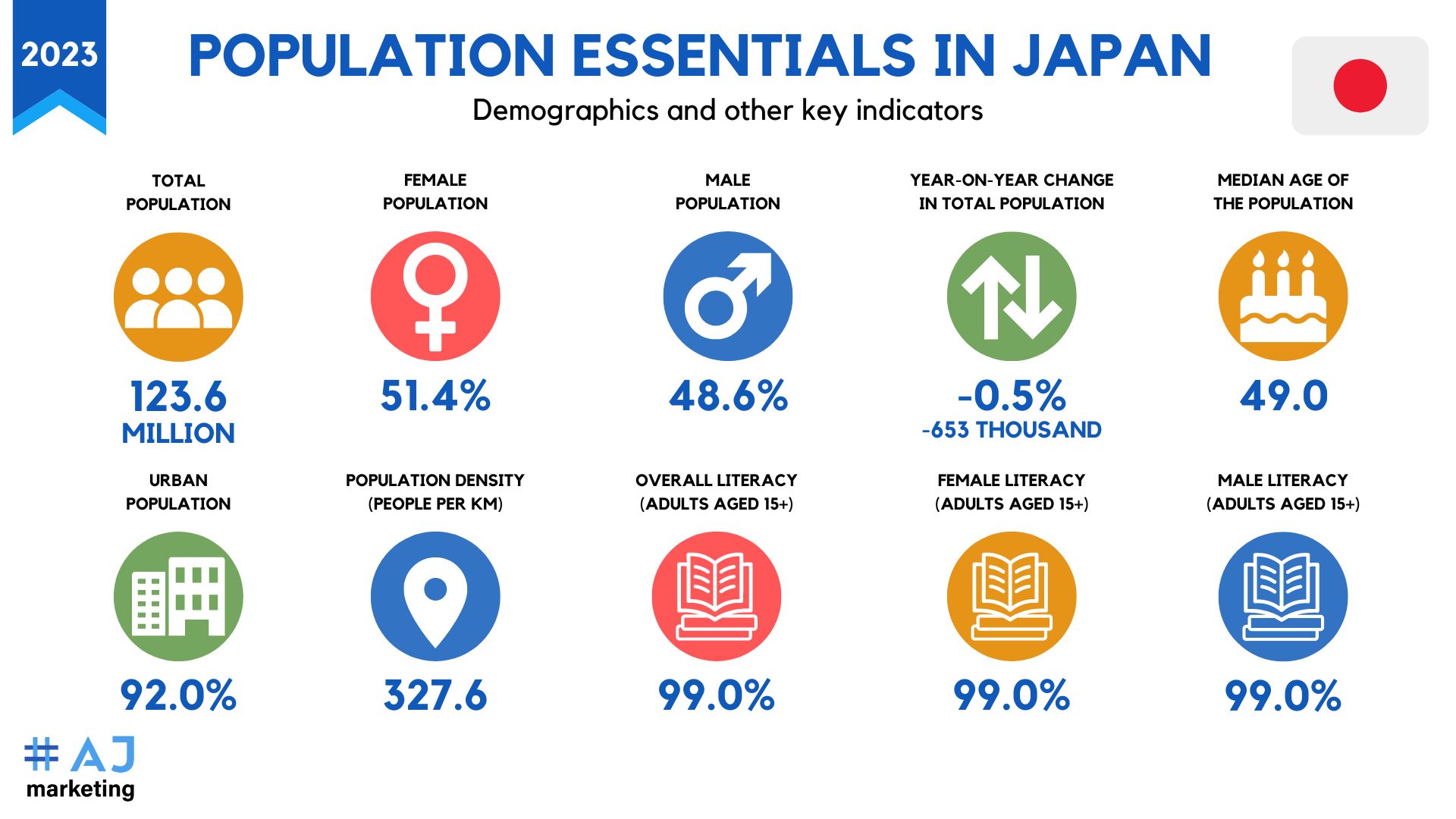TOKYO, Jun 07 (newsonjapan.com) - Hello there, entrepreneurs! We, at AJ Marketing, are thrilled to welcome you on this exciting journey towards expanding your business in Japan.
We know you're eager to tap into this dynamic market, and we're here to help you navigate the intricacies that make this beautiful country both a challenge and an opportunity for business growth.
Japan, fondly known as the Land of the Rising Sun, is a marvel that fuses tradition and innovation, showcasing an awe-inspiring blend of age-old customs and cutting-edge technology.
At AJ Marketing, we believe in equipping businesses like yours with the necessary knowledge and tools to succeed in foreign markets. With our experience and expertise, we've helped numerous entrepreneurs unlock the potential of Asian markets, and we're eager to do the same for you in Japan.
In this article, we're going to share some key insights and valuable tips that are crucial for any business looking to establish itself in Japan. So, let's dive in, shall we?
Guide to Starting a Business in Japan:
- Diving into the Land of the Rising Sun: An Introduction to Japan's Business Landscape
- Beyond Words: The Nuance of Japanese Business Communication
- Cracking the Code: Demystifying Business Registration and Licensing in Japan
- Winning Hearts and Wallets: Crafting a Successful Japan Market Entry Strategy
- Cultivating Connections: The Importance of Local Partnerships and Support in Japan
1. Diving into the Land of the Rising Sun
An Introduction to Japan's Business Landscape

We, at AJ Marketing, think it's crucial to get a bird's eye view of the Japanese landscape. Understanding the country's demographic and economic makeup is like assembling the jigsaw puzzle frame before filling in the pieces. It sets the stage for what's to come and provides context for our deep dive into the specifics of doing business in Japan.
So, here's Japan by the numbers: home to a population of approximately 123.6 million people, Japan boasts a staggering 92% urbanization rate. This is reflected in bustling metropolises like Tokyo and Osaka, whose dynamic energy and density make them the nerve centers of the nation's economy. These cities are teeming with both traditional businesses and innovative startups, offering ample opportunities for those willing to navigate their unique complexities.
But Japan's urbanization is only one piece of the puzzle. The literacy rate in Japan is another remarkable figure to take note of - standing at a commendable 99%. This tells us that the Japanese market is knowledgeable, discerning, and likely to appreciate well-thought-out products and services. Whether you're in tech, retail, or any other sector, these are the consumers you'll be communicating with, and understanding their sophistication will inform how you position your offerings.
As we delve into the economy, the Land of the Rising Sun continues to impress. Despite occasional economic challenges and its mature status, Japan's economy is far from stagnant. In fact, the nation's Gross Domestic Product (GDP) is projected to have grown by 1.4% in the first quarter of 2023 alone. Such consistent economic growth offers a stable environment for businesses to grow and flourish.
Now that we've set the stage with a broad understanding of Japan's demographic and economic landscape, we're ready to delve deeper. Stick with us, and we'll ensure you're well-prepared to make a splash in the Japanese market!
2. Beyond Words
The Nuance of Japanese Business Communication

Let's delve into a significant aspect of doing business in Japan that often baffles foreigners – the art of communication. Communication in Japan often goes beyond mere words. It's a subtle dance of both spoken and unspoken language, carrying more weight than what's simply heard.
A distinctive feature of Japanese communication is the principle of "Honne" and "Tatemae". Honne refers to one's true feelings and desires, while Tatemae represents the public face that one shows to society, often masking Honne to maintain harmony. This cultural nuance plays a critical role in Japanese business communication, where indirectness and politeness are greatly valued.
It's also important to remember that non-verbal cues are just as important as verbal communication. For instance, maintaining eye contact might be seen as confrontational. Bowing, on the other hand, is a form of greeting and a sign of respect. The depth of your bow can even signify the level of respect or apology. It might seem tricky at first, but once you start understanding these nuances, you'll find your interactions in the Japanese business world much smoother.
One key point we often stress at AJ Marketing is that business in Japan is built on relationships and trust. It's not uncommon for business discussions to take place over informal settings such as dinner or drinks, rather than in a boardroom. These are excellent opportunities to build personal relationships with your Japanese counterparts, which in turn fosters trust and long-term business partnerships.
Effective communication in the Japanese business environment involves understanding these subtleties and respecting them in your interactions. It's about embracing their way of doing things, even if it feels unfamiliar at first. With patience, respect, and a willingness to learn, you'll find yourself navigating Japanese business communication with grace and confidence.
3. Cracking the Code
Demystifying Business Registration and Licensing in Japan

Stepping into the world of Japanese business, one quickly realizes that understanding the cultural nuances is only half the battle. The other half involves navigating the legal maze of business registration and licensing. But don't worry, we at AJ Marketing are here to help you crack this code and simplify the process.
Starting a company in Japan involves several steps, each playing a crucial role in the foundation of your business. The journey commences with the preparation and filing of your company's incorporation documents with the Trade Register. This ensures the official registration of your business and marks the first step towards having an operational enterprise.
Following this, your venture will need to acquire specific licenses and permits from Japanese authorities. Let's walk through some of the key permits you'll need to be aware of:
A. The Residence and Work Permit
As a foreign entrepreneur, the residence and work permit is your golden ticket to doing business in Japan. It not only grants you the right to live in Japan but also allows you to conduct business there. It's worth noting that this permit also enables a foreign investor to become a director in a Japanese company. Evidence of Japanese residency is mandatory when initiating the company registration process with the Trade Register.
B. The Business License
Once your business has been incorporated with the Trade Register and recognized by the tax and social security authorities, you'll be issued a business license. This is the primary permit issued to a registered company in Japan.
Beyond these, the requirements for additional permits and licenses vary greatly depending on your business type. For instance:
- Restaurants, cafes, and bars require permission from the public health center or the prefectural governor.
- Importing and selling alcohol necessitates a license from the head of the taxation office or the local taxation office.
- Businesses in hairdressing or barber services need a permit from the area's public health center.
- To act as a travel agent, registration must be submitted with the Minister of Transport or the Transport Bureau.
- These are just a few examples, with many other sectors requiring their specific permits and licenses. It's important to remember that each license necessitates satisfying particular conditions and providing required documents in Japanese.
While this may sound daunting, we assure you, with the right guidance, the process can be made much simpler. Stick with us, and we'll continue to guide you through the intricacies of Japan's business landscape.
4. Winning Hearts and Wallets
Crafting a Successful Japan Market Entry Strategy
In the previous sections, we delved into the essentials of Japan's business landscape, communication nuances, and legal maze. Now, it's time to turn our attention to one of the most critical aspects of your business venture in Japan - your market entry strategy. At AJ Marketing, we firmly believe that a well-crafted market entry strategy is your key to winning not just the wallets, but the hearts of your Japanese consumers.
Let's start by understanding that Japan's consumer market is sophisticated, diverse, and very particular about quality and service. Any business aiming to enter this market needs to ensure their product or service not only meets but exceeds these expectations. Deep market research, understanding consumer behavior, and localizing your offerings are some of the initial steps towards crafting a successful strategy.
But that's not all. Your market entry strategy should also consider the most effective method of entry. This could range from setting up a wholly-owned subsidiary, entering a joint venture with a local company, or using a sales representative or distributor.
Now, let's look at a real-life example to better illustrate how these strategies can play out. A shining instance of successful market entry in Japan is the story of the Swedish furniture giant, IKEA. Despite its global popularity, IKEA faced significant challenges in its initial entry into Japan in the 1980s and had to withdraw.
When IKEA decided to re-enter the Japanese market in 2006, they took a markedly different approach. Rather than imposing their global norms, they focused on understanding the unique needs of Japanese consumers. Recognizing that Japanese homes were smaller, IKEA adapted its product range to offer more small-space solutions. They also invested in a strong marketing campaign to educate consumers about their self-assembled furniture concept, a novelty in Japan. Today, IKEA is a well-established brand in Japan, illustrating that understanding and adapting to local needs can indeed win hearts and wallets.
In the next section, we will discuss the importance of building local partnerships and securing support in Japan. This will be your final stepping stone in your journey to starting a business in Japan.
5. Cultivating Connections
The Importance of Local Partnerships and Support in Japan
As we arrive at the final chapter of our journey of starting a business in Japan, let's talk about a vital ingredient that can be a game-changer for your success in this market – cultivating local partnerships and securing support.
At AJ Marketing, we've found that connections or "kone" play a significant role in Japanese business culture. Japanese businesses often operate within tightly-knit networks of companies and individuals, forming ecosystems of mutual support and business opportunities. As a newcomer, building relationships and integrating into these networks can greatly accelerate your market entry and growth.
In practical terms, this could mean establishing a joint venture with a local company, collaborating with local distributors, or even partnering with a local celebrity for endorsement. These partnerships can provide invaluable market insights, increase your brand's credibility, and give you access to a wider customer base.
Apart from this, local partnerships can also help in navigating the regulatory environment, accessing local resources, and understanding the nuances of the Japanese market. Remember, a well-connected local partner can serve as a bridge between your business and the Japanese market, smoothing your path to success.
At AJ Marketing, we are committed to helping businesses like yours succeed in foreign markets. We can help businesses in making a bang when entering Japan through localized marketing campaigns!
Conclusion
We hope that this guide has provided valuable insights into starting your business in Japan. And remember, this is just the beginning. We are here to support you every step of the way in your journey. So, let's step into the Land of the Rising Sun together and explore the wonderful opportunities it holds for your business.
To know more about building a business and marketing in Japan, check out our Japan blog!















